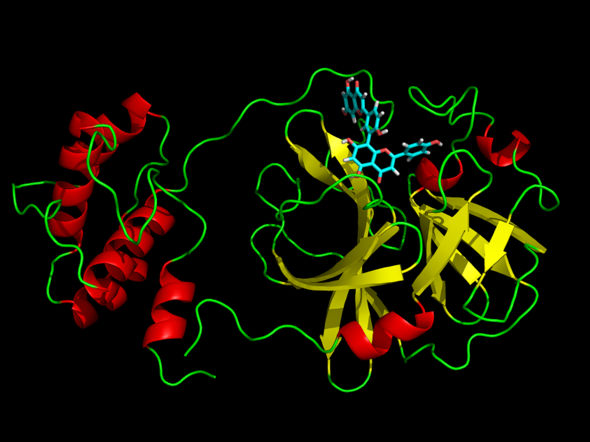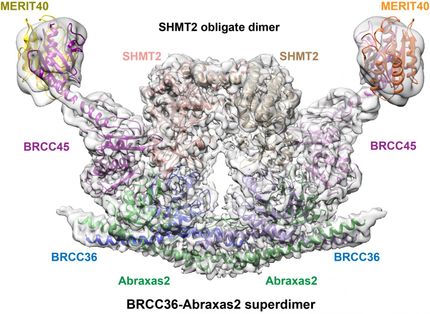Researchers of VTT and the University of Turku discover new information on cancer generation mechanisms
A cell that is ‘adrift’ is not able to divide normally
A joint research group of VTT Technical Research Centre of Finland and the University of Turku, led by Professor Johanna Ivaska, has discovered why cells require surrounding tissue in order to be able to divide. By doing so, the group has solved a mystery that has puzzled cancer researchers for decades. The research results show why a cell which is ‘adrift’, i.e. separated from the surrounding tissue, is not able to divide normally. This causes changes in the cell’s genotype which expose the body to cancer.
For decades, researchers have known that human cells must be in their right place in the body, surrounded by tissue, in order for them to be able to divide normally. When separated from the rest of the tissue, normal cells are not able to divide and will thus die.
Microscopic images taken by the group’s doctoral researchers, Saara Tuomi and Teijo Pellinen, revealed that a dividing cell anchors itself during the various stages of division by using cell adhesion receptors called integrins. A cell with malfunctioning anchoring molecules will become adrift and start to divide abnormally and thus acquire the potential to become a cancer cell. The research group also uncovered evidence, in cooperation with a research group led by professor Olli Kallioniemi, that the anchoring mechanism had been disturbed in some cases of ovarian cancer and in some prostate cancer metastases. The finding supports the hypothesis proposed by scientists at the beginning of the last century that abnormal cell division is one of the mechanisms in the development of cancer.
The research results open an entirely new perspective on the early stages of the development of cancer and how the changes occurring in cancerous tissue enable the cancer to continuously become a more malignant and more aggressive tumour. When cells become independent of their anchoring mechanisms, a vicious circle is created: genotype changes occurring at an ever-increasing pace enable the disease to become more and more aggressive.
Original publication: Pellinen T., Tuomi S., Arjonen A., Wolf M., Edgren H., Meyer H., Grosse R., Kitzing T., Rantala JK., Kallioniemi O., Fässler R., Kallio M., and Ivaska J.; "Integrin traffic regulated by Rab21 is necessary for cytokinesis."; Developmental Cell 2008.
Organizations
Other news from the department science

Get the life science industry in your inbox
By submitting this form you agree that LUMITOS AG will send you the newsletter(s) selected above by email. Your data will not be passed on to third parties. Your data will be stored and processed in accordance with our data protection regulations. LUMITOS may contact you by email for the purpose of advertising or market and opinion surveys. You can revoke your consent at any time without giving reasons to LUMITOS AG, Ernst-Augustin-Str. 2, 12489 Berlin, Germany or by e-mail at revoke@lumitos.com with effect for the future. In addition, each email contains a link to unsubscribe from the corresponding newsletter.
Most read news
More news from our other portals
Last viewed contents
Category:National_Institute_for_Occupational_Safety_and_Health

Natural compounds that inhibit the main protease of the SARS-CoV-2 virus discovered by virtual screening - Fighting the COVID-19 Pandemic
Zimbabwe_Red_Cross_Society






















































